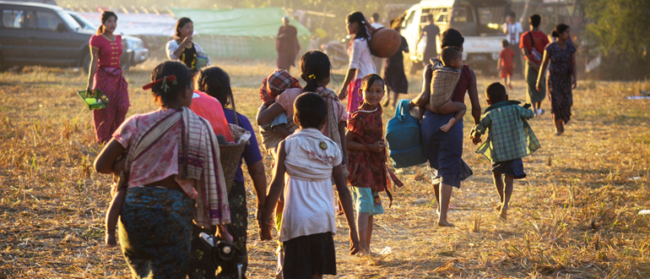Strangled by sanctions, bankrupted by military spending and almost entirely economically reliant on a Communist titan intent on pushing its own interests – almost 40 years ago, these words could have described the reunified Socialist Republic of Vietnam, still struggling to rebuild its shattered economy from decades of war in the face of debilitating economic sanctions. Today, they describe North Korea.
Rumours that the next summit between the Democratic People’s Republic of Korea (DPRK) supreme leader Kim Jong-un and US President Donald Trump may be held in Vietnam have reignited speculation that the North has its eyes firmly fixed on the economic reforms that transformed Vietnam from a pariah state to one of Southeast Asia’s most rapidly growing economies – and a nation that has struck a delicate balance between the wealth of neighbouring China and its former foe, the United States. Nor has the comparison escaped the notice of the leadership – both US Secretary of State Mike Pompeo and, apparently, Kim Jong-un himself have cited the socialist republic’s Doi Moi – or renovation – reforms as an inspiration for North Korea’s economic future. With a peace-hungry president leading the South and the North engaging in historic talks with the US president over the conditions of its re-entry into the international community, the idea of Doi Moi in the DPRK is a compelling one.
Khang Vu, a master’s candidate at Dartmouth College focusing on East Asian politics, said the informal market economy that had flourished in the DPRK since the ascension of Kim Jong-il suggested a clear parallel with the lead-up to Vietnam’s Doi Moi reforms.
“When you look at North Korea today, it looks a lot like Vietnam in the late 1970s and early 1980s,” he told Southeast Asia Globe. “In the early 1980s, the Vietnamese government tried to have some small-scale reforms, but mainly at a local level. If you look at North Korea right now, you will notice that the North Korean government has no control over the black market – the North Korean people have lots of access to the black market, which has spread across all of North Korea as the government failed to continue their public distribution system. And the people now have to fend for themselves or rely on trade with China.”
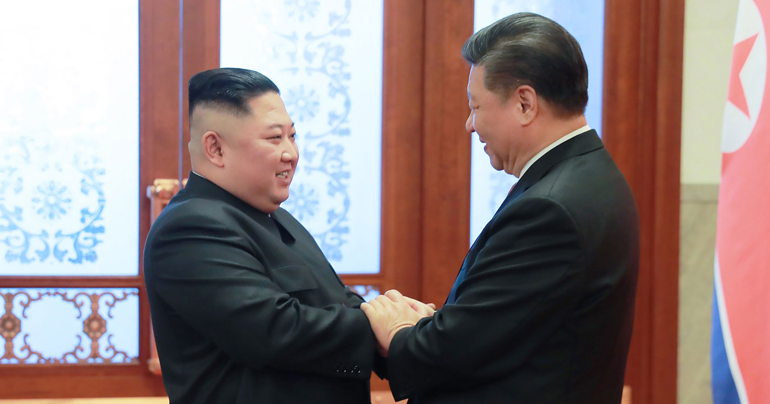
For the Korean Workers’ Party, the spectre of an ostensibly communist nation combining one-party rule with a flourishing mixed-market economy may prove a promising path indeed. Lim Eunjung, assistant professor at Ritsumeikan University’s College of International Relations, said that Vietnam had managed to maintain its one-party political structure in the wake of a tidal wave of foreign investment and tourism from the wider world.
“I’m not 100% sure how really attractive the Vietnamese model is to the North Korean elites, but still, as a socialist [nation], they didn’t abandon their ideology,” she said. “In that sense, Vietnam is probably their sort of compromise between its own ideological goals or ambitions and economic growth and development – so it would be a good case to follow.”
But for those who have watched relations between the two communist nations deteriorate to new lows following the suspected use of a Vietnamese national in the brazen public assassination of Kim Jong-un’s half-brother in Kuala Lumpur International Airport in 2016, it seems unlikely that the infamously isolationist DPRK would be keen to follow in Vietnam’s footsteps. Balazs Szalontai, a historian at Korea University’s Department of North Korean Studies, said the much-vaunted “Vietnam model” that Pompeo is pushing seems to be little more than an exercise in PR from both sides of the negotiating table.
“I think that the term is currently used mainly for diplomatic purposes by both sides,” he said. “The US government presents it as a positive example: see, it is possible to retain one-party leadership, achieve economic growth and obtain international recognition at the same time, and thus Kim Jong-un would gain much from a reform policy, and he should not be afraid of it. The North Korean leadership occasionally displays a public interest in the Vietnamese and/or Chinese reforms to demonstrate its goodwill, i.e., that its primary concern is peaceful economic development rather than a military-first policy.”
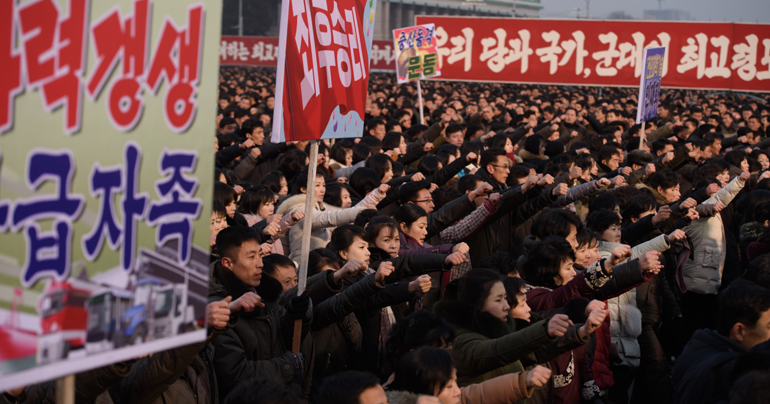
And with the two Koreas yet to sign a peace treaty more than half a century after an armistice brought the Korean War to an uneasy truce, and the DPRK still crippled by sweeping economic sanctions, decades of military build-up on the peninsula has proved a hard habit to shake. More pressingly, Kim Jong-un’s apparently successful pursuit of a nuclear arsenal to even the military imbalance between the North and the might of the Western powers arrayed against it is proving a stumbling block in ongoing negotiations as both the US and DPRK dig deeper into their own definitions of denuclearisation on the peninsula.
Here, too, we find echoes of the lead-up to Vietnam’s reformation. With tens of thousands of troops still occupying neighbouring Cambodia in a decade-long struggle against the remnants of Pol Pot’s ultra-Maoist Khmer Rouge, pre-Doi Moi Vietnam remained a pariah state solely reliant on the crumbing Soviet Union and caught between the divided Communist world and a US still bitter from its humiliating defeat in Indochina. For Vu, it was only after taking the decision to withdraw from Cambodia and allow UN-orchestrated elections to take place that Vietnam was able to normalise ties with the wider international community.
“I often think about the Cambodian invasion and international sanctions as North Korea’s nuclear weapons right now,” he said. “It was only after they withdrew from Cambodia that the Vietnamese government got this kind of sanction relief from the United States and the chance to open their market to Australia, South Korea and Japan, and to normalise diplomatic relations with the United States – and get access to the IMF and the World Bank. If the North Korean government really wants to attract foreign investment, they need to have some kind of denuclearisation pledge, just the same way that the Vietnamese government committed themselves to withdrawing from Cambodia.”
The problem is that for China, the idea of a nuclear-armed but non-provocative North Korea is a more or less an acceptable solution
Szalontai, though, argued that while Vietnam’s military occupation of its client state to the west had proved an unsustainable drain on its finances, the DPRK’s nuclear capabilities remained a valuable bargaining chip for the so-called hermit kingdom.
“In the case of present-day North Korea, the leadership is probably less convinced that military-first policies as such were counterproductive, though they seem to have realised that an openly confrontational attitude should be avoided, because provocative steps would increasingly alienate China,” he said. “Since early 2018, Kim Jong-un has been pursuing a sort of low-key nuclear policy, that is, refraining from nuclear and missile tests and dismantling a few specific nuclear and missile testing grounds, but apparently seeking to retain a nuclear weapons capability instead of the complete, verifiable and irreversible denuclearisation [CVID] demanded by the USA.”
Szalontai maintained that Kim Jong-un is unlikely to denuclearise, even though the prospect of it brought China, the US and South Korea to the bargaining table, because it is not a deal breaker for China.
“The problem is that for China, the idea of a nuclear-armed but non-provocative North Korea is a more or less an acceptable solution to the problem – just as China was willing to live with a nuclear-armed Pakistan – or at least preferable to a protracted stalemate, sanctions and new sanctions, US muscle-flexing, THAAD and all that,” he said. “If China is content with this, sanctions won’t really work because only China can enforce them effectively. There are also signs that the South Korean government tacitly considers it unrealisable to push for CVID [complete, verifiable and irreversible dismantlement], and hence they are willing to relax sanctions in practice, though not necessarily de jure, even if there is no further progress toward de-nuclearisation.”
This, then, brings into stark relief the most glaring disconnect between the DPRK and its Southeast Asian counterpart: that while Vietnam’s economic renovation took place in a nation united after years of civil war, the Korean peninsula is now more divided than ever between the isolated North and its now exponentially more prosperous neighbour to the south.
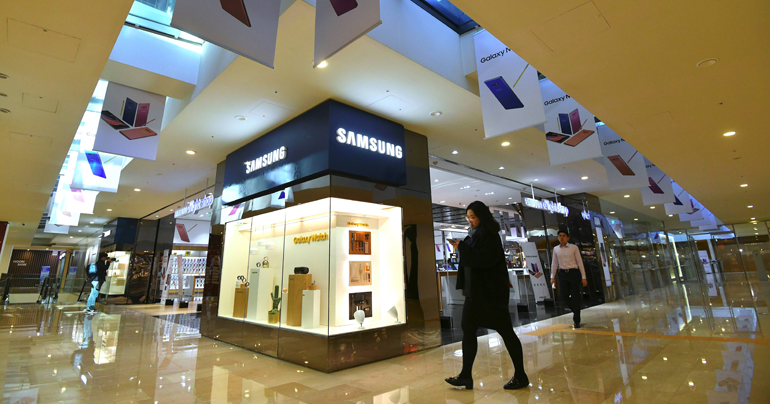
Vu suggested that for the Pyongyang elite, the idea of liberalising the DPRK’s economy to the extent that Vietnam or China had done under Doi Moi and Deng Xiaoping, the clear contrasts between rhetoric and reality in the North may prove impossible to reconcile.
“When it comes to international trade, one thing I’m pretty curious about is how far the North Korean government wants to open their economy,” he said. “Because in the Vietnamese case, they didn’t have a country like South Vietnam anymore to actually compare and contrast between north and south. But if the North Korean government opens their economy to the standard that the Vietnamese did in the 1990s, then the North Korean people will simply have a lot more access to the South Korean media – they can compare and contrast themselves to how the South Koreans are doing, and the Kim family will lose all their legitimacy.”
Two generations of supreme leaders have so far been able if not to condone then at least to refrain from condemning the black market economy that has grown to replace the ailing public distribution system. Despite that, it’s doubtful the regime would tolerate the level of political liberalisation that heralded economic reforms in Vietnam and China.
“The North Korean leaders must also keep in mind their constant competition with South Korea,” Szalontai said. “Once they allow a certain political liberalisation, there is a risk of rising expectations, i.e., that people would use this opportunity to push for more and even more rights on the grounds that even a softened North Korean dictatorship would be far less attractive than democratic South Korea next door.”
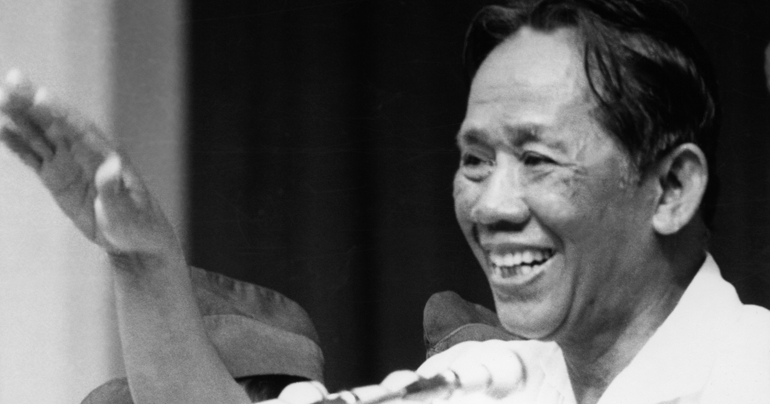
But while the collective leadership espoused by the communist parties in China and Vietnam in the wake of paramount leaders such as Mao Zedong and Le Duan seems a far cry from the unyielding supremacy of Kim Jong-un, Lim suggested that another dynastic regime within Southeast Asia may prove a more palatable model for the Kim family.
“Singapore is strategically smart and quasi-authoritarian together with economic prosperity – that kind of model might be very attractive to Kim Jong-un as well,” she said. “But even though the North wants to learn from that kind of balance between a market economy and that sort of quasi-authoritarian regime, the actual economic model itself should be a little different from the Singaporean experience.”
Lim stressed that while the DPRK had little chance of growing into the finance and shipping titan of Singapore, the hermit kingdom had its own pride of place in the trade routes of Asia.
“The North’s position is pretty meaningful too – it’s literally the gate to the Russian continent,” she said. “In that sense, they will try to maximise their geographic advantages. It looks like [Kim Jong-un] still doesn’t want to abandon that self-sufficient economy as a socialist country, and he emphasises manufacturing too. In that sense, the Vietnamese case or the Chinese case can also be educational to Kim Jong-un.”
For now, the North may continue to play it safe. Vu pointed towards the Kaesong Industrial Complex, a joint project between North and South Korea that provides more than 120 companies access to 54,000 labourers, as a way to allow a degree of economic liberalisation sealed safely away from the stifled political climate of the DPRK. With more special economic zones built along this model, Vu said, the North could ensure access to the kind of foreign investment it needs to spur its sluggish economy without risking the turmoil a full reformation might bring.
“I think right now the NK government simply gave up their communist ideology in 2009 already,” he said. “Right now they just really want to get foreign investment and become self-reliant – which should be contradictory, but in the case of NK, they’re complementary. To be able to maintain power, they need to gain a lot of money from foreign investment – and keep their people in check.”

